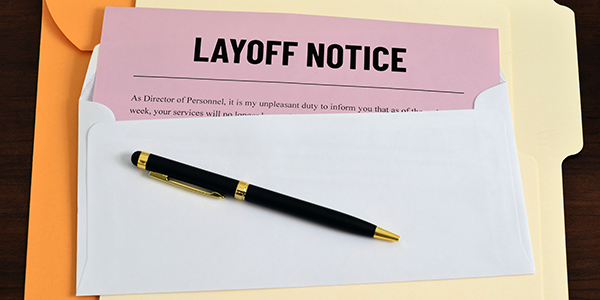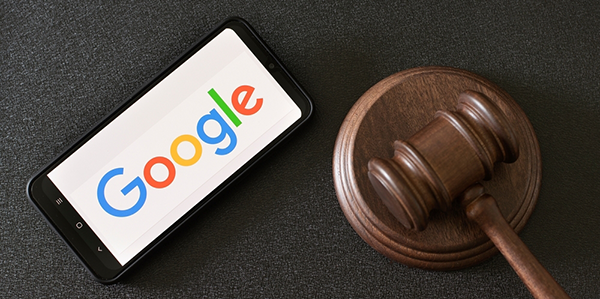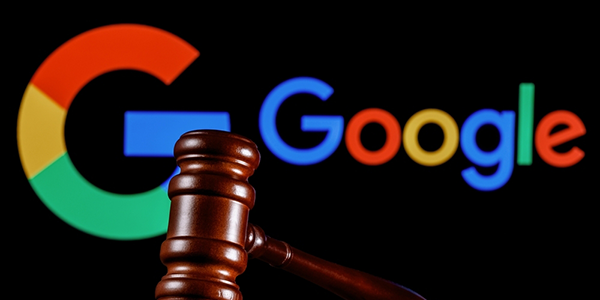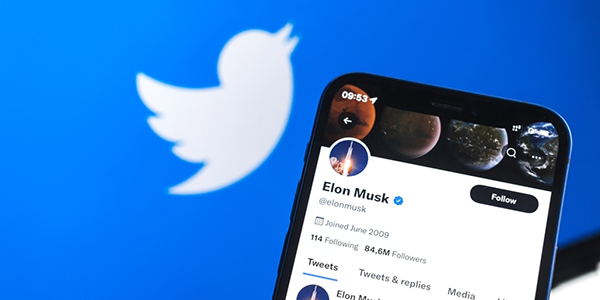 |
||||||||||||||||
|
||||||||||||||||
| Massive Media Layoffs Signals Alarm for Pubs |
 |
| There couldn't be a more telling sign that we're spiraling toward a recession than the massive round of loud layoffs hitting media companies, agencies, and even big tech. Back in August, we cautiously asked: "Are We in the Midst of an Ad Recession?" And at the time, it was a question that no one wanted to seriously consider. But it was only a matter of time before the revenue shortfalls that the triopoly was experiencing would be dramatically felt by everyone else. This is especially true, as quarter after quarter, ad spend kept getting smaller and smaller no matter what major agencies like Group M predicted for 2022 — when they said there was no recession. So, in recent weeks, as economic fears heightened, and media companies started cutting back, we watched CNN, Buzzfeed/Complex, Gannett, and other premium pubs significantly reduce their headcounts. CNN laid off hundreds, Buzzfeed laid off 12% of staff, and Gannett cut nearly six percent. And even as CTV shines brightly as the bell of the ball, Roku's economic woes continue causing the streaming media company to slash 200 jobs. What a crappy way to end the year, with massive media layoffs reminiscent of those pandemic-era layoffs when economic uncertainty ruled the advertising ecosystem. It feels like it's happening all over again, and it's not just media companies feeling the impact we're talking about, big brand buyers like Pepsico also tightening their belts, as well as ad businesses losing 2,500 people. Let's also not forget the whopping number of layoffs mounting over at Meta and Amazon, with speculation about Google also joining these ranks heating up. That's right, let's get it straight, it's people losing jobs, not jobs lost. It's a frigid winter indeed, and not a great time for digital media and advertising. |
| While we hate to be the bearers of bad news, if inflation continues to rise and supply chain issues don't stop, we'll be hearing about a lot more downsizing well into 2023. If you watched or downloaded Luma’s State of Digital Marketing 2022, then it should come as no surprise that every category has been down for the past 12 months. But we're optimistic that doesn't mean there's no digging our way out of this. It's even more important now than ever for advertisers to diversify their ad spend and for pubs to diversify their revenue strategies. For the pubs with creative in-house chops or self-service tech at their disposal, this moment might be ripe to win away some of those SMB deals from beleaguered Meta. And as we're hearing more publishers rumbling about PMPs, PGs, and PDs, it seems an opportune time for both buyers and sellers to benefit from more of these types of deals. With that said, we're closely watching what publishers like Bloomberg and Salon are doing to not only survive the coming cookiepocalypse but to lead what may very well be the future of revenue operations. You should be watching them too. |
| FTC Closes Ad Tech Industry Comments on Consumer Surveillance |
 |
| Remember in August when the FTC announced that it would implement rules to combat harmful commercial surveillance and relaxed data security? Initially, the FTC sought comments from industry experts and trade organizations, as well as the public, to help them determine the scope and framework of new data privacy regulations. Fast forward, and now after receiving over 11,000 comments, the FTC has closed off public commentary. Here are two questions the agency posed to the public among the 95 questions they asked about surveillance, data security, dark patterns, targeted advertising, discrimination, and competition issues:
|
| We've heard a lot of FTC chatter these days. Remember what happened when Kochava released data from millions of mobile devices and exposed those individuals to "threats of stigma, stalking, discrimination, job loss, and even physical violence?" The FTC put their foot down and made an example of the mobile attribution and analytics company. Ironically enough, in their comments, the Interactive Advertising Bureau expressed a distaste for the commission's "intent to engage in rulemaking substantially outside the scope" of its authority and that Congress should be the one spearheading privacy regulations. Garret Johnson, Marketing Professor at Boston University's Questrom School of Business, reiterated that point of view, expressing that "the FTC’s new direction is…increasingly out-of-step with industry practices.” He feels strongly that the digital advertising ecosystem is rebuilding itself as a privacy-first industry that not only protects consumers' data privacy, but also enables advertisers to target, measure, and optimize their advertising campaigns. Other industry feedback touched on minimizing data abuse, such as companies compiling more data from a user than is necessary. Hopefully, the FTC will use these comments to build regulations that work for everyone —consumers, publishers, and marketers alike. But it's likely going to take some time before we see any action, especially if the proposed rule is comprehensive and puts the clamp down on the advertising ecosystem. We may not even see a privacy rule from the FTC in 2023. |
| JCPA Is Out: Win for Big Tech, but Big Blow to Small and Local Publishers |
 |
| Big tech and the infamous duopoly gained another victory last week when Congress dropped the Journalism Competition and Preservation Act (JCPA) from the national defense spending bill. If passed, the law would have allowed these core protections:
Continued pressure from big tech and digital rights organizations has made this law only a figment of Congress' imagination. Similar bills were pushed forward in Canada and Australia, but the U.S. hit a stalemate. Meta threatened to pull all news content from their platform if Congress passed the bill. They argued that "forcing platforms to pay for content whether or not they want to use it would create a cartel-like scenario." Other detractors included an alliance of 26 advocacy and policy groups such as the American Civil Liberties Union, Chamber of Progress, Electronic Frontier Foundation, and Public Knowledge. They argued that the bill would:
On the other hand, media groups were disheartened by the news. They thought the JCPA would be a major step toward compensating journalism organizations properly for big tech platforms building their gigantic revenues off the backs of their content. |
| Many small and local publishers were banking on the law to restrict big tech from hoarding revenue from content and advertising. Experts who followed the progress of a similar law in Australia proposed that the JCPA could "infuse billions of dollars from Google and Facebook to pay journalists over its eight-year duration." A couple of months ago, Australia's bargaining code siphoned $140 million back to news organizations. To many, this bill was going to be about leveling the playing field between the duopoly and everyone else. That Meta's threat yielded enough power to have the law thrown out of the defense bill only further exhibits the power imbalance between publishers and the big players. Even Microsoft called out Google last year for the monopoly of power they have over content and advertising. This was when one of the first iterations of the JCPA was brought to the U.S. Microsoft president Brad Smith said: "News organizations have ad inventory to sell, but they can no longer sell directly to those who want to place ads," said Smith. "Instead, for all practical purposes, they must use Google's tools, operate on Google's ad exchanges, contribute data to Google's operations, and pay Google money. All this impacts the ability of news organizations to benefit economically even from advertising on their sites." Will the duopoly's influence continue to place its proverbial foot on small publishers' necks? As of now, no new laws could replace the JCPA, and those in power want to keep it that way. |
| Yahoo & Taboola Make a Pact to Build Contextual Powerhouse |
 |
| At a time when most publishers are scaling back on their ad tech investments, Yahoo’s CEO, Jim Lanzone, has other plans. The global media and ad tech company is honing in on its digital advertising business, recently announcing a 25% stake in Taboola, a company known for content discovery and native advertising. This 30-year exclusive partnership will allow Yahoo to use Taboola's technology to manage its native advertising business. Thirty years seems like way more than a lifetime in digital years. In fact, on an investor call, Taboola CEO, Adam Singolda joked about the length of the deal, saying, "we'll be taking day trips to Mars when this gets renewed." While this partnership is one of a kind, it is important to note that Taboola specializes in native advertising and has long-term partnerships with other digital giants like CNBC, BBC, NBC News, Business Insider, The Independent, and El Mundo. “This win-win partnership will meaningfully accelerate our growth flywheel, expanding our reach to more users on the open web with high-intent traffic to provide world-class solutions for advertisers, publishers, merchants, and users in a cookie-less world," said Singolda. |
| As the third-party tracking cookie enters its final days, with this deal, brands trying to reach consumers on the open web will be able to achieve better reach, campaign performance and improved user experience. According to Singolda, together, the two will be building, “a ‘contextual powerhouse,’ enabling advertisers to target relevant audiences without relying on third-party cookies and while maintaining complete user privacy.” There are also better monetization opportunities for publishers coming out of this. The partnership gives Taboola the opportunity to drive native across Yahoo’s media properties, reaching about 900 MAUs worldwide. For Yahoo, the union puts them in a new category as it is expected to generate about $1 billion in annual revenue for the publisher. Recently we've seen Yahoo move away from being a dinosaur of the internet to continuously reinventing itself, especially on the ad tech side of their operation. Sounds like a match made in heaven doesn’t it? As digital advertising struggles to stay alive in 2022 and going into 2023, other publishers have decided to cut ties with third-party partners like Taboola. For instance, Bloomberg stopped leaning on third-party programmatic, with Taboola ending up on the cutting room floor. For many publishers, Taboola probably only drives a minuscule percentage of their revenue. For Bloomberg, it was only 5%, so kicking them to the curb wasn’t a hard decision. That brings us to another point. Native advertising isn’t easy to scale, as ad tech veteran, Ari Paparo, speaking for a lot of questioning minds throughout the industry said while laying out four valid concerns about the deal overall. There have always been chuckles inside ad tech about companies like Taboola and Outbrain representing a race to the bottom, but perhaps this deal with Yahoo will give them the opportunity to up their quality controls and become more legit. We think Jack Wagner, Founder, and CEO, Hawk Ventures said it best. “Revenue with thresholds associated. It will be interesting to see how/if they reinvent the user experience of these performance ads. I still feel they are misleading to most users.” It sounds like a crazy deal, but what it promises on paper could be major for both players. Surviving a likely recession isn’t easy, and we’re almost certain that in 2023 we’ll be seeing a lot more hookups like these. |
| UK Pubs' Lawsuit Could Knock Google Down a Peg |
 |
| It is never easy to step toward a giant, but someone has to pick up a slingshot and launch the first stone. Thousands of digital publishers are pursuing a class action case against Google in the UK, seeking £13.6 billion(16.3 billion) in damages. The plaintiffs filed a claim with the Competition Appeal Tribunal (CAT) for Google's alleged anti-competitive behavior related to its ad tech practices. According to a press release published by CAT, the plaintiffs allege that Google "abused its dominant position in the market for online advertising, earning super-profits for itself at the expense of the tens of thousands of publishers of websites and mobile apps in the UK." Economic analysis was tested to support the suit's credibility, and it suggests that Google's advertising practices reduced ad revenue by up to 40% for some companies. Going back to January 2014, the study estimates that 130,000 businesses suffered a total loss of £13.6 billion. In response, Google claimed that the lawsuit was full of speculation and opportunistic from the plaintiffs' side. More specifically Google said, "Google works constructively with publishers across Europe — our advertising tools, and those of our many ad tech competitors, help millions of websites and apps fund their content, and enable businesses of all sizes to effectively reach new customers. These services adapt and evolve in partnership with those same publishers." |
| Google’s ad tech practices have caused an air of disdain in the ecosystem for quite some time. As the industry evolves, businesses across the globe grew weary of the company’s monopoly on ad tech revenue. Even at the front half of the year, the triopoly was estimated to have a hold on about 85% of ad spend. With the fortified stronghold of the walled gardens, Amazon, Facebook, and Google maintained control of the major ad data and assets which translates into revenue. While the UK class action suit reflects the sentiment of the global ad tech ecosystem, the UK ad tech community’s earnestness to pursue this lawsuit stems from a lack of action from their federal government. The U.K.’s Competition and Markets Authority (CMA) published results in July of 2020 that asserted Google and Facebook’s market power was so strong that it needed a new regulatory framework. Yet, no action has been taken because of those results. |
| “The Biggest Advertiser Incentive Ever on Twitter:" Saving Grace or Major Bust? |
 |
| Elon Musk's first month of taking over Twitter was a total disaster. And that's putting it lightly. There were major staff cuts across the company, a majority of whose work helped protect brand safety. Major corporations lost billions of dollars in stock value after Musk's plans to revamp account verification led to an onslaught of parody accounts. For example, a fake verified Eli Lily account tweeted: "we are excited to announce insulin is now free." So it's no surprise that many advertisers took their money and ran. But now, major players Amazon and Apple have had a change of heart and are planning to resume advertising with Twitter. They were prompted to return after Musk sent out an email last Thursday to advertising agencies promoting incentives for advertisers to resume ad spend on the platform. With the subject line "The Biggest Advertiser Incentive Ever on Twitter", the email promised U.S. advertisers that it "would match their December campaign investments of $500,000 or up to $1 million in incremental reach; so, if an advertiser spends $1 million on the platform in December, it will get $2 million worth of impressions, and if an advertiser spends $500,000, it will get $1 million in impressions, according to two buyers briefed on the offer." Will other advertisers follow suit? |
| Long before Musk's takeover, Twitter was flowing with ad dollars. The chaos after he took the helm caused many of those ad dollars to stop. The return of major players like Amazon and Apple–Twitter's largest advertiser–could be a positive sign for Twitter. On the other hand, it does not seem like the company's new incentive has convinced all advertisers. While the money may be good, concerns for brand safety have not been erased. "Right now, those that decided to pull are just going to stay on the sidelines until things calm down," a media buyer said. "Those on might take advantage, but I don't see anyone coming back on." The problem is that agency executives still recommend that brands avoid advertising on Twitter. Twitter has larger issues to deal with than addressing advertisers' ad spend. Advertisers simply no longer feel safe using the platform. "What comes next for Twitter remains very unclear, there is still a lot of negative press coverage, including who is and isn't advertising, concerns about brand safety, and questions about the system's stability operating with reduced staff, and more," an anonymous media agency exec said. "Even if everything is running, as usual, the last month eroded trust between advertisers, buyers, and Twitter. While this may be an opportunity for some, it does not address the reasons behind advertiser's apprehension." Here are advertiser's demands to come back to Twiter:
|








